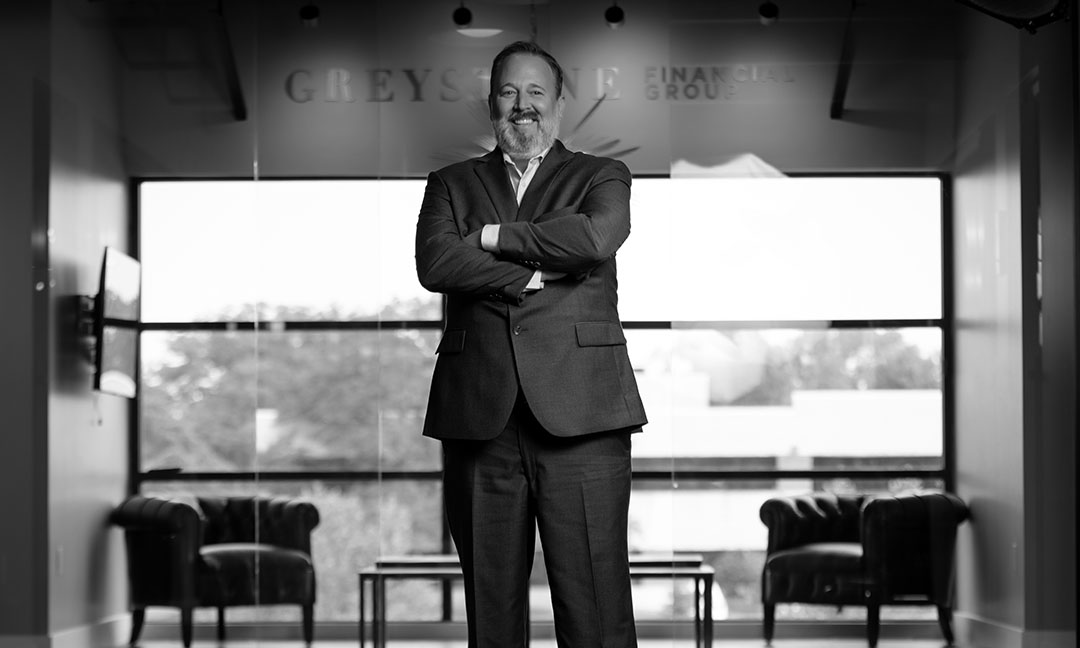Long-time clients of Greystone Financial Group know that we encourage our clients to have an Estate Plan. This can include a Will, Trust, Durable Powers of Attorney and Medical Powers. We also encourage our clients to review that Estate Plan regularly because not only do the laws change but also family situations change.
When it comes to creating your Estate Plan there are two very important decisions that need to be made. The relatively easy decision is usually – Who gets what? The harder decision is often – Who will have the responsibility for representing your interests, maximizing and protecting your assets, and making distributions according to your wishes?
At Greystone, we have seen all kinds of family situations that involve complex scenarios. Everything from clients with special needs children, under age beneficiaries, difficult family dynamics, second marriages and blended families, to beneficiaries who just want professional help managing their inheritance.
Picking the right trustee is vital. Trustees have many responsibilities including identifying and gathering the assets of the Trust, recordkeeping, preparing tax returns, day to day administration, investment management, regular reporting to the beneficiaries, and ultimately distributing the assets out of the Trust. You will want to pick a trustee that has the time, capacity, and skills necessary to handle these responsibilities. Oh, and they also need to be willing!
Here are several thoughts to consider:
- Impartiality: An individual, often a child or family member, can be chosen as trustee and this person will know the family history and dynamics. However, it can be difficult for a family member to act objectively and remove their own emotions. There can also be conflicts of interest when the trustee is also a beneficiary of the trust. A professional trustee can be a neutral party and avoids subjectivity.
- Expertise: An individual trustee may or may not have experience with the different tasks associated with managing a trust (think tax preparation, creating reports for beneficiaries, working with investment advisors, managing real estate, etc.). A Trust Bank or professional trustee will have in-house experts to deal with all aspects of managing a trust, communication with beneficiaries, navigating the probate court, and accounting.
- Consistent Presence: An individual trustee may be busy with their own lives and families. They may resign, die, move away, or tire of serving as trustee. A professional trustee is an entity – it exists exclusively to ensure ongoing, high-level service.
- Accountability and Protection: A professional trustee or Trust Bank is audited, regulated, bonded, and insured. When you ask an individual to take on the responsibilities of being your trustee they assume all the fiduciary responsibilities but don’t have these protections for them or the beneficiaries.
- Cost and Value: A Trust Bank or professional trustee does come at a cost. Often, people assume it is expensive. It is important to note that individual trustees are allowed to bill the trust for their time. While many don’t charge, sometimes you get what you pay for. Also, individual trustees may not have the expertise to handle all the different tasks so they end up hiring outside professionals anyway. This may mean the professional trustee with in-house resources and years of experience may end up being a cost-efficient and effective solution after all.
Something else to consider, if you appreciate the value of the professional trustee’s experience and objectiveness but still want a family member or friend to maintain a personal connection, you can name the Trust Bank as a co-trustee. This allows the professional trustee to handle the bulk of the tasks while guiding the family through the process. Also, if you are currently serving in the role of trustee for a loved one’s trust, you may be able to hire a Trust Bank in an advisory role. While technically they won’t be a trustee, they can guide you as trustee through the steps.
Your Director at Greystone Financial Group is not a lawyer, and we cannot give you legal advice, but we can meet with you and your Estate Planning attorney to help you ask the right questions. Ultimately, naming a Trust Bank to serve as your professional trustee is an individual decision, but understanding the role you are asking your trustee to take on may help guide you to the correct answer.

Eric Babcock
Director
Disclosures:
There is no guarantee investment strategies will be successful. Investing involves risks including possible loss of principal. There is always the risk that an investor may lose money. A long-term investment approach cannot guarantee a profit.
All expressions of opinion are subject to change. This article is distributed for educational purposes, and it is not to be construed as an offer, solicitation, recommendation, or endorsement of any particular security, products, or services. The information herein has not been based on consideration of any individual investor circumstances and is not investment, tax, accounting, legal or regulatory advice. Investors should talk to their wealth advisor prior to making any investment decision.




